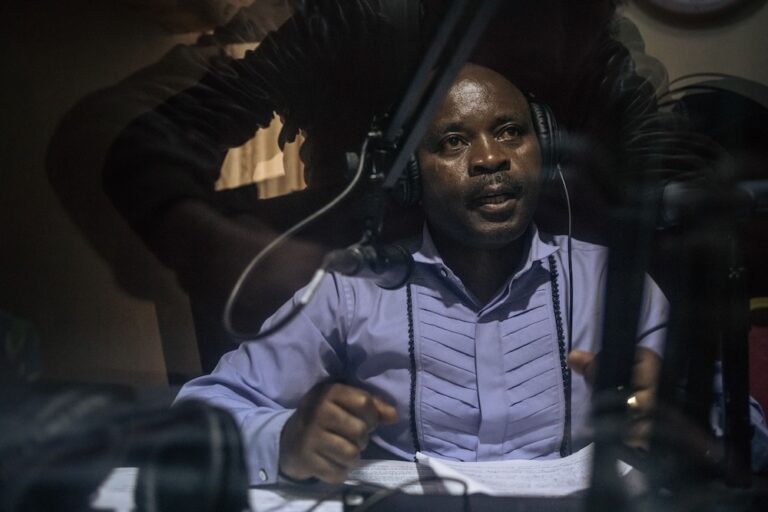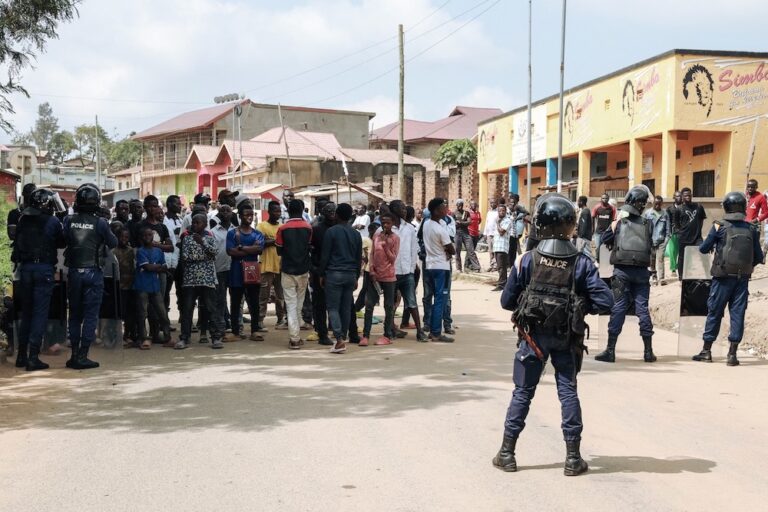(JED/IFEX) – On Tuesday 17 July 2001, Joseph Mutambule, Joachim Diana Gikupa, Kipela Mondo and Mireille Kavungu, deputy director-general, publication director, principal editor-in-chief and management secretary, respectively, from the pro-government daily “L’Avenir”, were summoned to the Public Prosecutor’s Office’s Criminal Investigation Department (Police judiciaire des parquets, PJP) in Kinshasa / Gombe. JED has learned that […]
(JED/IFEX) – On Tuesday 17 July 2001, Joseph Mutambule, Joachim Diana Gikupa, Kipela Mondo and Mireille Kavungu, deputy director-general, publication director, principal editor-in-chief and management secretary, respectively, from the pro-government daily “L’Avenir”, were summoned to the Public Prosecutor’s Office’s Criminal Investigation Department (Police judiciaire des parquets, PJP) in Kinshasa / Gombe.
JED has learned that the journalists and employees were summoned by a Criminal Investigation Department inspector (inspecteur de police judiciaire, IPJ) named Konde. The only information in the summons received by the “L’Avenir” journalists and employees was that they were to present themselves “immediately” to the PJP’s office to be “heard on a subject of which they will be informed.”
However, according to information received by JED, one of the persons who delivered the summons said that Mutambule, Diana, Kipela and Kavungu were summoned “for highly political reasons.”
Fearing that they would be imprisoned immediately, the “L’Avenir” journalists and employees refused to go to the PJP until they received an explanation for the summons.
The PJP officers who were sent to “L’Avenir”‘s headquarters then returned to their office, after being ordered to do so by a magistrate who was alerted by the newspaper’s publisher. Minister of Communications and Press Kikaya Bin Karubi personally went to the newspaper’s headquarters to inquire about the situation.
Three weeks earlier, “L’Avenir”‘s publication director, Joachim Diana Gikupa, was released after being imprisoned for seven days in National Information Agency (Agence nationale de renseignements, ANR) cells. Diana Gikupa’s arrest and detention in inhumane conditions was linked to “L’Avenir”‘s publication of an article which was critical of the head of state’s cabinet director (see IFEX alerts of 22 and 18 June 2001).


